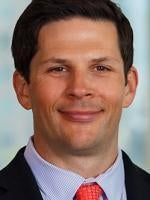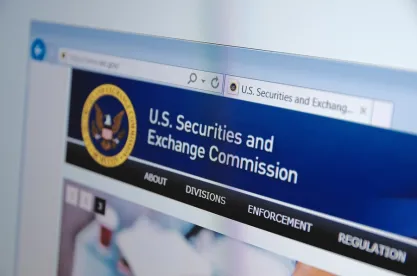On September 3, 2020, the Securities & Exchange Commission charged Daniel Kamensky with abusing his fiduciary position as co-chair of the Neiman Marcus Group Unsecured Creditors’ Committee by pressuring a rival bidder to abandon its bid for securities so that Kamensky’s hedge fund could purchase them at a lower price. The U.S. Attorney’s Office for the Southern District of New York also brought charges against Kamensky for securities fraud, wire fraud, extortion, and obstruction of justice. The allegations—if proven—are a fascinating story in and of themselves.[1] But they also serve as an excellent illustration of the pitfalls awaiting Unsecured Creditors’ Committee members who ignore their fiduciary duties.
The Back Story: In a nutshell, Marble Ridge Capital, the hedge fund Kamensky founded and managed, successfully applied to be a member of the Unsecured Creditors’ Committee. The Committee negotiated a deal under which 140 million shares of securities would be obtained for unsecured creditors. So far so good. Things allegedly went awry when Marble Ridge began negotiating with the Committee to purchase securities from unsecured creditors who preferred cash. Kamensky allegedly learned that investment bank Jefferies intended to make a higher cash offer to unsecured creditors. To protect his firm’s offer, Kamensky informed a senior Jefferies trader that he would use his position as co-chair of the Committee to block the sale if the competing bid were not withdrawn. As a result, Jefferies decided not to make a bid for the securities and informed legal counsel for the Committee of Kamensky’s threat. Fearing he may have exposed himself to criminal liability, Kamensky purportedly made things even worse by calling the Jefferies trader and requesting he cover up the substance of their prior communications, acknowledging he “probably” breached his obligations as a fiduciary.
What are Unsecured Creditors’ Committees and Why Are They Necessary?
Section 1102 of the Bankruptcy Code provides for appointment of a committee of unsecured creditors by the United States Trustee, the Department of Justice’s watchdog that monitors bankruptcy proceedings. The logic behind appointing an unsecured creditors’ committee is that unsecured creditors frequently find themselves in a precarious position with little leverage—unlike secured creditors, which receive certain protections under the Bankruptcy Code—e.g., adequate protection of cash collateral used by the debtor. To level the playing field somewhat, the Bankruptcy Code provides for appointment of an unsecured creditors’ committee. Although the Bankruptcy Code states that a committee should generally be comprised of the 7 largest claimants willing to serve, the U.S. Trustee has considerable discretion in appointing members and generally attempts to ensure that a committee’s membership represents the gamut of claims. For example, the U.S. Trustee might select a tort claimant to represent tort victims and a trade creditor to represent unpaid vendors on the committee. The Bankruptcy Code allows the committee to seek payment of its legal fees from the bankruptcy estate and requires a committee to, among other things, investigate the debtor and its financial dealings. Creditors’ committees can (and regularly do) obtain the right to pursue derivative claims (e.g., claims for breach of fiduciary duty or fraudulent transfer) that the debtor’s management may not wish to pursue, due to conflicts of interest.
In short, unsecured creditors’ committees exist to ensure that unsecured creditors get the best recovery possible under the circumstances. Because of this, creditors’ committee members owe fiduciary duties to all unsecured creditors and are required to place the interests of unsecured creditors as a whole above their individual interests. The allegations against Kamensky—if true—would mean that he placed the interests of his hedge fund in obtaining a good deal above the interests of all unsecured creditors in obtaining a higher price for their securities.
I’m Not a Bankruptcy Attorney. Why Does This Matter to Me or My Clients?
Serving on a creditors’ committee is one of the easiest ways for individuals or companies to become heavily involved in a bankruptcy proceeding. For example, a frustrated vendor with a large unpaid bill, or a fund holding a substantial amount of unsecured bond debt, may be interested in serving on a committee in hopes of influencing the case. The creditor may wish to improve the return for unsecured creditors, and, by extension, its own return since unsecured creditors generally receive the same pro rata recovery. That’s all good provided that the creditor stays focused on advancing the interests of all creditors, not just its own. What the Kamensky case illustrates is how quickly things can go downhill when a member forgets where its loyalties lie—to the point of significant civil and criminal charges. For this reason, a committee member’s representatives should consult with committee counsel prior to taking any action that could in any way be viewed as advancing the creditor’s own interests over those of the unsecured creditor body. Failure to carefully observe fiduciary duties may result in dire consequences.
[1] The SEC’s press release is available online. See the U.S. Attorney for the Southern District of New York’s press release.




 />i
/>i

